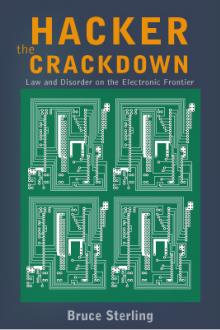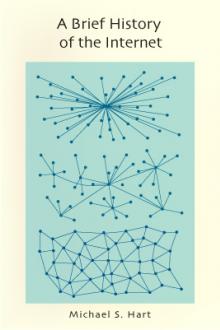Genre Other. Page - 356

their respect for the ladies, whom it was their duty to serve. And nearly every other ceremony which has lasted was based on common sense. "Etiquette," as Dr. Brown has said, "with all its littlenesses and niceties, is founded upon a central idea of right and wrong."
The word "courtesy" itself did not come into the language until late (etiquette came even later) and then it was used to describe the polite practices at court. It was wholly divorced from any idea of character, and the most fastidious gentlemen were sometimes the most complete scoundrels. Even the authors of books of etiquette were men of great superficial elegance whose moral standards were scandalously low. One of them, an Italian, was banished from court for having published an indecent poem and wrote his treatise on polite behavior while he was living in enforced retirement in his villa outside the city. It was translated for the edification of the young men of England and France and served as a standard for several generations. Anot

adand do that, I am giving you express permission right now. Enjoyyourself.
You can put the book on disks and give the disks away, aslong as you don't take any money for it.
But this book is not public domain. You can't copyrightit in your own name. I own the copyright. Attempts to piratethis book and make money from selling it may involve you in aserious litigative snarl. Believe me, for the pittance you mightwring out of such an action, it's really not worth it. This bookdon't "belong" to you. In an odd but very genuine way, I feel itdoesn't "belong" to me, either. It's a book about the people ofcyberspace, and distributing it in this way is the best way Iknow to actually make this information available, freely andeasily, to all the people of cyberspace--including people faroutside the borders of the United States, who otherwise may neverhave a chance to see any edition of the book, and who may perhapslearn something useful from this strange story of distant,obscure, but por

as ripped open by the Bulgarian soldiers, after they had subjected her to as much cruelty as a damsel could survive; they knocked the Baron, her father, on the head for attempting to defend her; My Lady, her mother, was cut in pieces; my poor pupil was served just in the same manner as his sister; and as for the castle, they have not left one stone upon another; they have destroyed all the ducks, and sheep, the barns, and the trees; but we have had our revenge, for the Abares have done the very same thing in a neighboring barony, which belonged to a Bulgarian lord."
At hearing this, Candide fainted away a second time, but, not withstanding, having come to himself again, he said all that it became him to say; he inquired into the cause and effect, as well as into the sufficing reason that had reduced Pangloss to so miserable a condition.
"Alas," replied the preceptor, "it was love; love, the comfort of the human species; love, the preserver of the universe; the soul of all sensible beings; love!

s can bemade, what is their order of precedence, which can be debated, what istheir effect, etc., the common law of the land is settled by thepractice of the U. S. House of Representatives, and not by that of theEnglish Parliament, the U. S. Senate, or any other body.
While in extreme cases there is no difficulty in deciding the questionas to whether the practice of Congress determines the commonparliamentary law, yet between these extremes there must necessarily bea large number of doubtful cases upon which there would be greatdifference of opinion, and to avoid the serious difficulties alwaysarising from a lack of definiteness in the law, every deliberativeassembly should imitate our legislative bodies in adopting Rules ofOrder for the conduct of their business.* [Where the practice ofCongress differs from that of Parliament upon a material point, thecommon law of this country follows the practice of Congress. Thus inevery American deliberative assembly having no rules for conductingbusin

blacken his name and secure his removal, instigated a suit against him for having mismanaged an inheritance left to his children by his first wife. The children themselves appeared in his defence, however, and expressed their complete satisfaction with his administration of their property; and the trumped up charge was wholly disproved. But his enemies still wanted to have him removed and, choosing a new method of attack, forwarded a petition to the king in which they claimed that "Master Hans Chrestensen Sthen because of weakness and old age was incompetent to discharge his duties as a pastor", and asked for his removal to the parishes of Tygelse and Klagstrup. Though the king is reported to have granted the petition, other things seem to have intervened to prevent its execution, and the ill-used pastor appears to have remained at Malmø until his death, the date of which is unknown.
Sthen's fame as a poet and hymnwriter rests mainly on two thin volumes of poetry. A Small Handbook, Containi

of this kind, of overtones and undertones that illuminate the hackish psyche.
But there is more. Hackers, as a rule, love wordplay and are very conscious and inventive in their use of language. These traits seem to be common in young children, but the conformity-enforcing machine we are pleased to call an educational system bludgeons them out of most of us before adolescence. Thus, linguistic invention in most subcultures of the modern West is a halting and largely unconscious process. Hackers, by contrast, regard slang formation and use as a game to be played for conscious pleasure. Their inventions thus display an almost unique combination of the neotenous enjoyment of language-play with the discrimination of educated and powerful intelligence. Further, the electronic media which knit them together are fluid, `hot' connections, well adapted to both the dissemination of new slang and the ruthless culling of weak and superannuated specimens. The results of this process give us perhaps a uniquely inten

this nervous little chap.
There was a tray of drinks on a table beside him, from which he filled himself a stiff whisky-and-soda. He drank it off in three gulps, and cracked the glass as he set it down.
'Pardon,' he said, 'I'm a bit rattled tonight. You see, I happen at this moment to be dead.'
I sat down in an armchair and lit my pipe.
'What does it feel like?' I asked. I was pretty certain that I had to deal with a madman.
A smile flickered over his drawn face. 'I'm not mad - yet. Say, Sir, I've been watching you, and I reckon you're a cool customer. I reckon, too, you're an honest man, and not afraid of playing a bold hand. I'm going to confide in you. I need help worse than any man ever needed it, and I want to know if I can count you in.'
'Get on with your yarn,' I said, 'and I'll tell you.'
He seemed to brace himself for a great effort, and then started on the queerest rigmarole. I didn't get hold of it at first, and I had to stop and ask him questions. But here is the gis

estimates, and changes the relative sizes of many ofthe world's economies.
Concise descriptions of the major religions mentioned in the Factbookhave been added to the Notes and Definitions. France 's redesignationof some of its overseas possessions caused the five former Indian Oceanisland possessions making up Iles Eparses to be incorporated into theFrench Southern and Antarctic Lands, while two new Caribbean entities,St. Barthelemy and St. Martin, were created.
Revision of some individual country maps, first introduced in the 2001edition, is continued in this edition. The revised maps includeelevation extremes and a partial geographic grid. Several regional mapshave also been updated to reflect boundary changes and place namespelling changes.
Abbreviations: This information is included in Appendix A:Abbreviations, which includes all abbreviations and acronyms used inthe Factbook, with their expansions.
Acronyms: An acronym is an abbreviation coined from the initial letterof each

h easier than a baby, you see.
Of course I never mention it to them any more--I am too wise,--but I keep watch of it all the same.
There are things in that paper that nobody knows but me, or ever will.
Behind that outside pattern the dim shapes get clearer every day.
It is always the same shape, only very numerous.
And it is like a woman stooping down and creeping about behind that pattern. I don't like it a bit. I wonder--I begin to think--I wish John would take me away from here!
It is so hard to talk with John about my case, because he is so wise, and because he loves me so.
But I tried it last night.
It was moonlight. The moon shines in all around just as the sun does.
I hate to see it sometimes, it creeps so slowly, and always comes in by one window or another.
John was asleep and I hated to waken him, so I kept still and watched the moonlight on that undulating wall-paper till I felt creepy.
The faint figure behind seemed to sh

similar. I want yours. I want theone you have, even if I already have one or many.
3. Lust: I have to have it.
4. Anger: I will hurt you to insure that I have it, andand to insure that you do not have one.
5. Envy: I hate that you have one.
6. Greed: There is no end to how much I want, or to howlittle I want you to have in comparison.
7. Sloth: I am opposed to you moving up the ladder: itmeans that I will have to move up the ladder, to keepmy position of lordship over you. If I have twice asmuch as you do, and you gain a rung, that means I canonly regain my previous lordship by moving up two; itis far easier to knock you back a rung, or to preventyou from climbing at all.
Destruction is easier than construction.
This becomes even more obvious for the person who hasa goal of being 10 or 100 times further up the ladderof success. . .given the old, and hopefully obsolete,or soon to be obsolete, definitions of